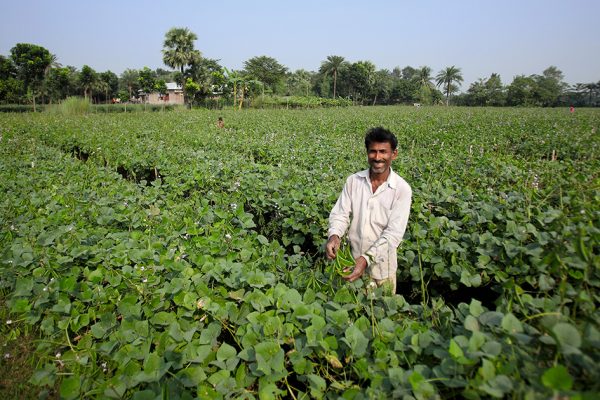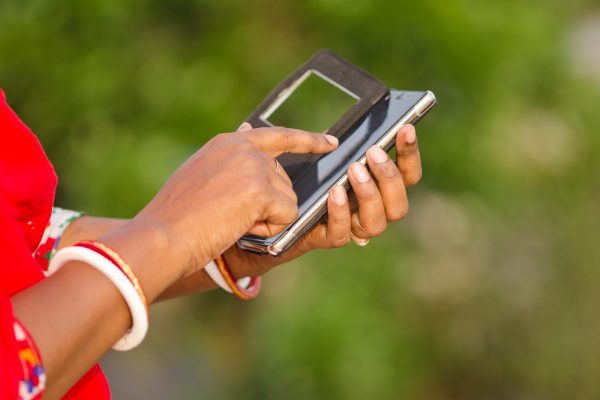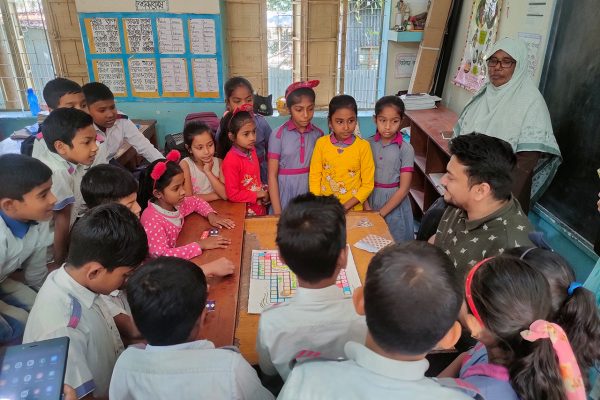Liberia, Class of ‘21: Women take a big step out of extreme poverty
Reading Time: 3 minutes
Welcome to Liberia’s Class of 2021, where women living in extreme poverty are creating a silent revolution. In a span of three years, 750 women have lifted themselves and their families out of poverty. What made it possible? Adolphus BW Doe shows us.
As the programme manager for BRAC’s Ultra-Poor Graduation (UPG) programme in Liberia, I feel privileged to have witnessed the transformation of 750 women living in extreme poverty into proud and resilient micro-entrepreneurs.
Only three years ago, these women earned barely USD 1 a day while working as wage labourers, cassava pickers, and charcoal makers. Now, they are micro-entrepreneurs who earn their livelihood through livestock rearing, vegetable farming, and running businesses like grocery shops.
The Graduation approach is very different from other programmes that target people living in poverty. It was started in Bangladesh and has evolved based on learning for almost 20 years.
Watch: 4 Steps to ending extreme poverty
A team carried out an appraisal process to select the 750 women living in ultra poverty. The women received training and asset transfer, which was then followed by robust coaching and mentoring through individual home visits and grouped sessions, to help bring behavioural change and build confidence in the women.
The Graduation approach works primarily with women, because women are the most affected by ultra-poverty. However, they are also the ones most likely to pull themselves and their families out of it.
Take Mary for example. Three years ago, I met Mary Cammue. She was 21 years old and lived in Quayah Town, Bong County. Mary was pregnant when her partner abandoned her. She survived by begging from her neighbours, and eventually dropped out from school. The Graduation programme supported her with a small store with assorted groceries as an enterprise.
Watch: BRAC Ultra-Poor Graduation Programme in Liberia
Mary has been managing her small business store diligently and now has two additional sources of income including cassava farming and an agri-products business. She is saving to construct her own house with a shop attached, and start attending school again.
To date, nearly 90% of the 750 households have diversified assets with multiple income sources. Their monthly average savings have increased from USD 2.28 to USD 11.42. All 750 women are a part of the savings group. The average loan size has also grown from USD 17.10 to USD 57.14 over a period of 18 months, and that growth remains consistent.
Consumption of nutritious meals have greatly improved by 90% after 18 months. The programme has repaired six broken wells, and the percentage of households accessing safe drinking water has increased from 85% to 97%. The percentage of school-aged children of beneficiaries attending school increased from 42% to 97%
At a time when the COVID-19 pandemic has pushed more households below the poverty line, the accomplishments of the 750 women is an emblem of hope. The World Bank announced that the pandemic will push as many as 150 million people into extreme poverty.
Read more: Meeting basic needs of the world’s poorest during a time of crisis
The Graduation approach can play a critical role in building resilience among communities and promoting long-term and large-scale recovery. During the pandemic, the Graduation approach has proven to help participants endure economic shocks by adaptably helping them build savings, diversify livelihoods, access social safety nets, and receive crucial public health information.
The Graduation approach has enabled 95% of participants in Bangladesh to remain engaged in income-generating activities during the pandemic. In Liberia, 73% of households have been able to maintain their assets and savings during lockdown.
I feel proud to be a part of the team that made this possible. Each time I visit the communities, I see women who once lived in ultra-poverty have now established themselves as entrepreneurs. I think of the many families living in extreme poverty now, and imagine the possibilities they can materialise into a reality.
Adolphus BW Doe is a programme manager of the Ultra-Poor Graduation Initiative at BRAC in Liberia.
Cover:Jake Lyell©BRAC





